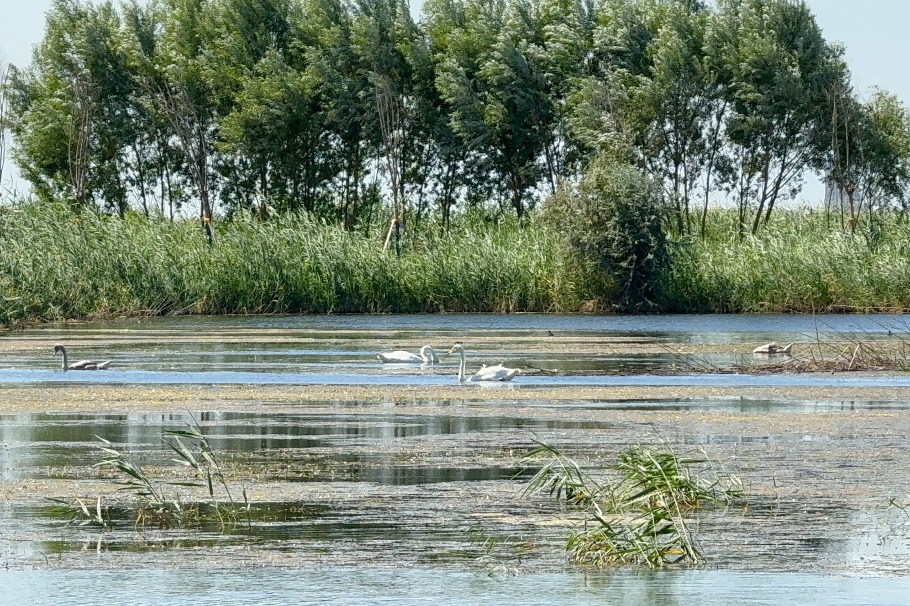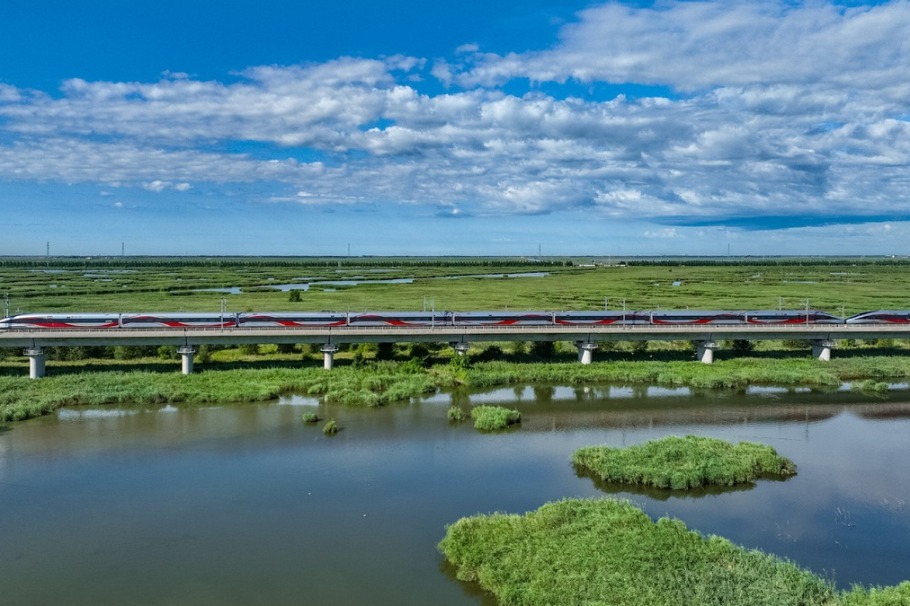Organic approach fertilizes greener farming

LANZHOU-With tomato seedlings growing half a person high, biogas fertilizer, like a black snake, reached the deep roots of the green branches, zigzagging from a plastic vat at the door of a solar greenhouse.
For farmer Han Dengping, biogas fertilizer is a novelty. When a recycling station in his hometown in Liangzhou district, Wuwei city, Northwest China's Gansu province, offered to provide biogas fertilizer free of charge last November, Han warily decided to give it a try.
"There has been no yellowing at the top of tomato seedlings so far, showing they are growing well," he says.
Xin Yixi, a farmer in Liangzhou's Huangyang village, however, has gone a step further than Han by bidding farewell to his long-held planting habits years ago.
For convenience, Xin and his fellow farmers used to dump the cattle and sheep manure into the cornfield as one of the sources of fertilizer.
"It did, indeed, save a lot of effort, but the problems of soil hardening, maize pests and diseases brought by the animal feces were very worrying," Xin says.
A panacea that could help the farmers get the best of both worlds came in 2016 when the recycling station was built in Liangzhou district, aiming to collect organic waste, including food residue, rotten vegetable leaves and livestock manure, to produce marsh gas and biogas fertilizer, among others.
"We are trying to transform the waste into treasure," says Guo Wei, who works for the company operating the recycling station.
The station can process more than 80,000 metric tons of organic waste annually and generate 6.5 million kilowatt-hours of electricity a year, according to Guo.
To stoke enthusiasm among the farmers, Guo's team adopted a barter system in 2018, through which local farmers can take cattle and sheep manure and maize straws to the station in exchange for biogas fertilizer.
"Considering the different planting habits and land conditions of each farmer, after technicians conduct a sample analysis of their soil, we distribute customized biogas fertilizers that have scientifically added corresponding components," Guo says.
Living only a kilometer or so from the recycling station, Xin was among the first batch of villagers to use the service in 2018.
In the following year, the seedling emergence rate of Xin's cornfield had increased by 20 percent, and he also saved about 5,000 yuan ($785) in fertilizer expenses.
"It's like magic," Xin says.
Besides the recycling station near Xin's home, Liangzhou district is now home to a total of five similar stations, processing 291,000 tons of organic waste, producing 13.5 million cubic meters of biogas and generating 19.27 million kWh of electricity annually.
"Changing the planting habits of farmers is one of the keys to achieving low-carbon output and green development, as the country aims to peak its carbon dioxide emissions before 2030 and achieve carbon neutrality before 2060," Guo says.
Xinhua
Today's Top News
- China reaffirms sovereignty over Taiwan, says complete reunification unstoppable
- A-share market surges past 100 trillion yuan milestone
- No reason for Germany to let political expediency hurt relations with China
- Book on Xi's views on strengthening, revitalizing armed forces published
- China supports Ukraine peace talks between all parties
- China to hold press conference on military parade preparations





























